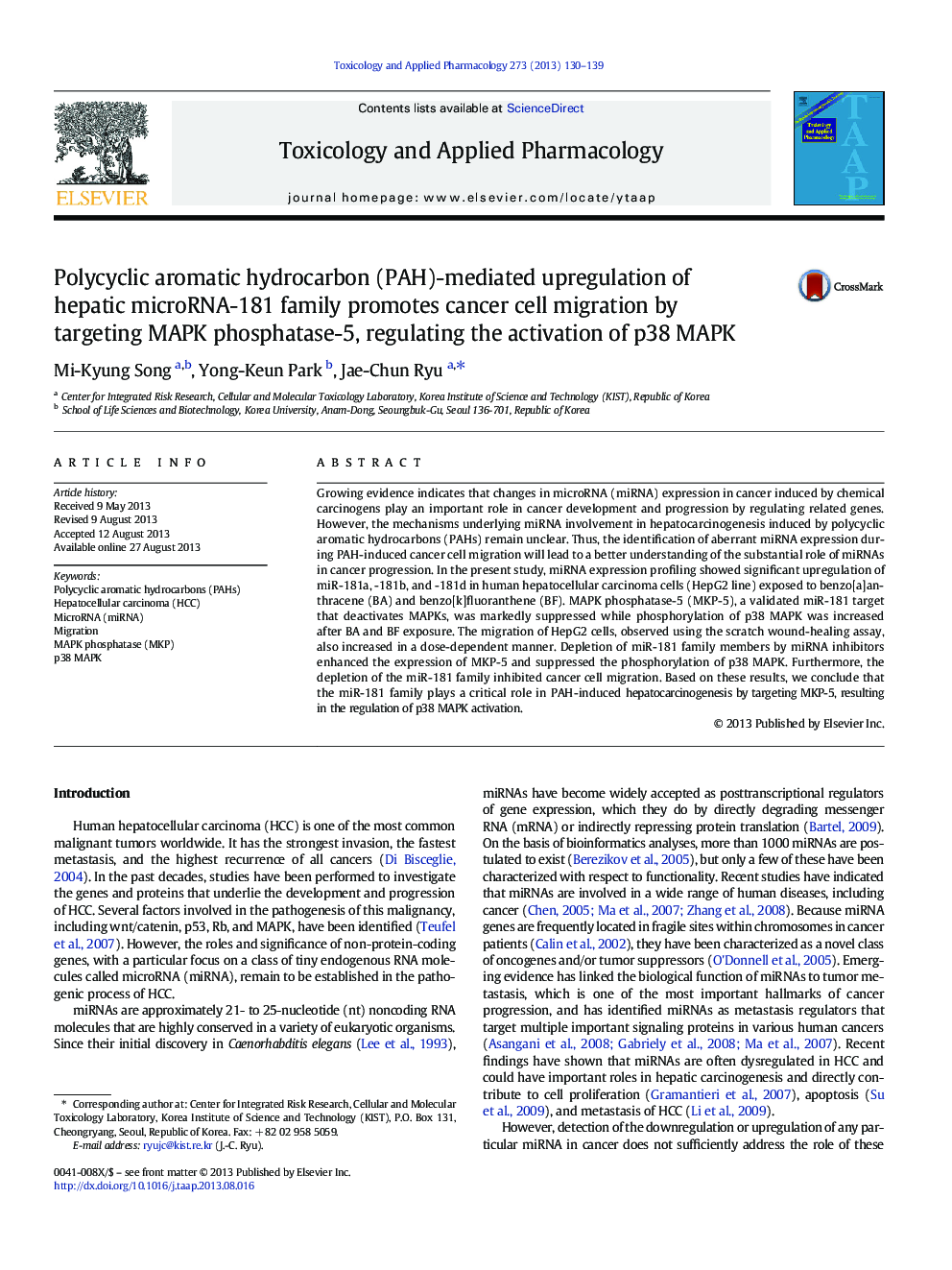| Article ID | Journal | Published Year | Pages | File Type |
|---|---|---|---|---|
| 5846536 | Toxicology and Applied Pharmacology | 2013 | 10 Pages |
Abstract
Growing evidence indicates that changes in microRNA (miRNA) expression in cancer induced by chemical carcinogens play an important role in cancer development and progression by regulating related genes. However, the mechanisms underlying miRNA involvement in hepatocarcinogenesis induced by polycyclic aromatic hydrocarbons (PAHs) remain unclear. Thus, the identification of aberrant miRNA expression during PAH-induced cancer cell migration will lead to a better understanding of the substantial role of miRNAs in cancer progression. In the present study, miRNA expression profiling showed significant upregulation of miR-181a, -181b, and -181d in human hepatocellular carcinoma cells (HepG2 line) exposed to benzo[a]anthracene (BA) and benzo[k]fluoranthene (BF). MAPK phosphatase-5 (MKP-5), a validated miR-181 target that deactivates MAPKs, was markedly suppressed while phosphorylation of p38 MAPK was increased after BA and BF exposure. The migration of HepG2 cells, observed using the scratch wound-healing assay, also increased in a dose-dependent manner. Depletion of miR-181 family members by miRNA inhibitors enhanced the expression of MKP-5 and suppressed the phosphorylation of p38 MAPK. Furthermore, the depletion of the miR-181 family inhibited cancer cell migration. Based on these results, we conclude that the miR-181 family plays a critical role in PAH-induced hepatocarcinogenesis by targeting MKP-5, resulting in the regulation of p38 MAPK activation.
Keywords
Related Topics
Life Sciences
Environmental Science
Health, Toxicology and Mutagenesis
Authors
Mi-Kyung Song, Yong-Keun Park, Jae-Chun Ryu,
